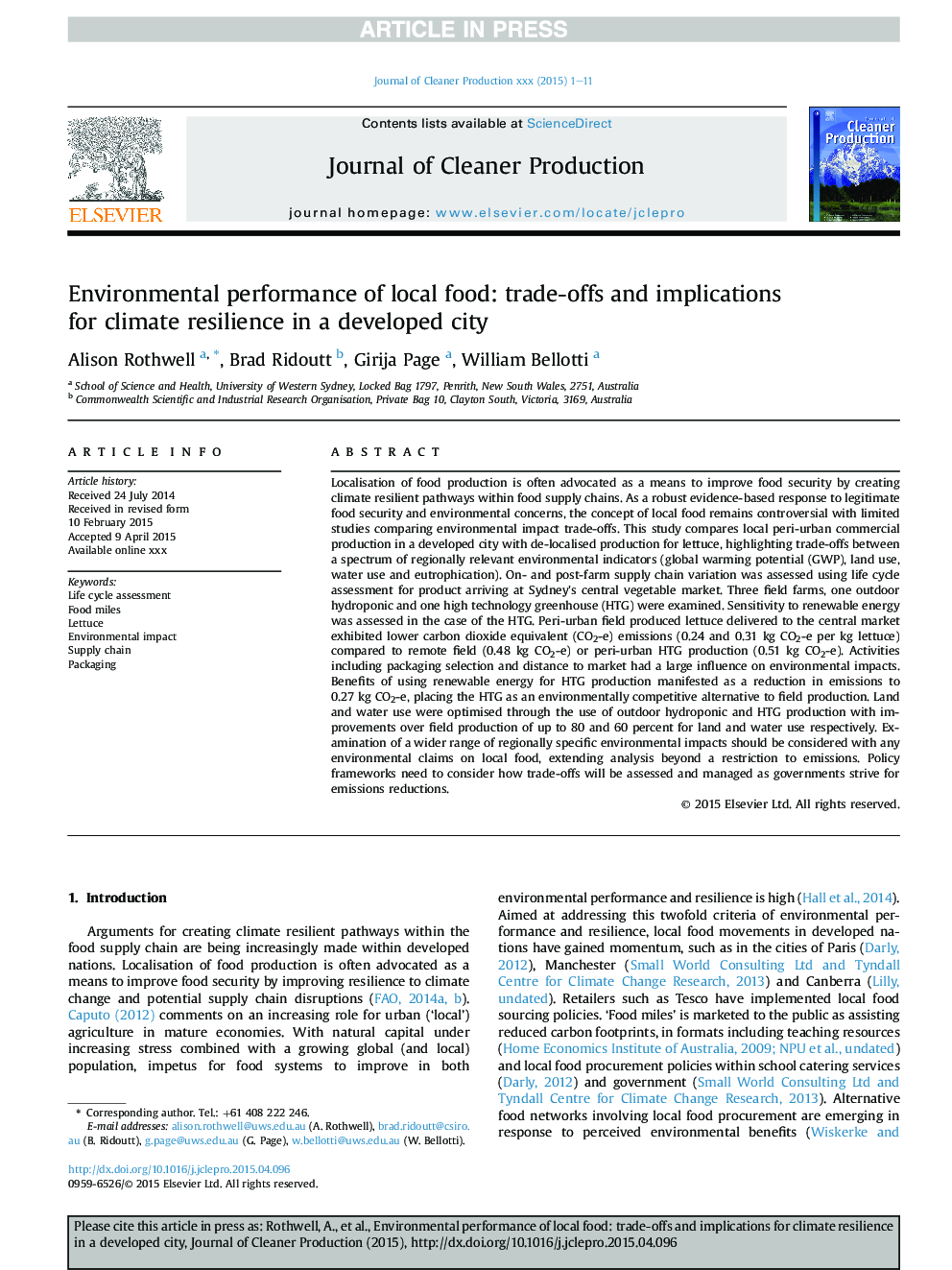| Article ID | Journal | Published Year | Pages | File Type |
|---|---|---|---|---|
| 8102795 | Journal of Cleaner Production | 2016 | 11 Pages |
Abstract
Localisation of food production is often advocated as a means to improve food security by creating climate resilient pathways within food supply chains. As a robust evidence-based response to legitimate food security and environmental concerns, the concept of local food remains controversial with limited studies comparing environmental impact trade-offs. This study compares local peri-urban commercial production in a developed city with de-localised production for lettuce, highlighting trade-offs between a spectrum of regionally relevant environmental indicators (global warming potential (GWP), land use, water use and eutrophication). On- and post-farm supply chain variation was assessed using life cycle assessment for product arriving at Sydney's central vegetable market. Three field farms, one outdoor hydroponic and one high technology greenhouse (HTG) were examined. Sensitivity to renewable energy was assessed in the case of the HTG. Peri-urban field produced lettuce delivered to the central market exhibited lower carbon dioxide equivalent (CO2-e) emissions (0.24 and 0.31 kg CO2-e per kg lettuce) compared to remote field (0.48 kg CO2-e) or peri-urban HTG production (0.51 kg CO2-e). Activities including packaging selection and distance to market had a large influence on environmental impacts. Benefits of using renewable energy for HTG production manifested as a reduction in emissions to 0.27 kg CO2-e, placing the HTG as an environmentally competitive alternative to field production. Land and water use were optimised through the use of outdoor hydroponic and HTG production with improvements over field production of up to 80 and 60 percent for land and water use respectively. Examination of a wider range of regionally specific environmental impacts should be considered with any environmental claims on local food, extending analysis beyond a restriction to emissions. Policy frameworks need to consider how trade-offs will be assessed and managed as governments strive for emissions reductions.
Related Topics
Physical Sciences and Engineering
Energy
Renewable Energy, Sustainability and the Environment
Authors
Alison Rothwell, Brad Ridoutt, Girija Page, William Bellotti,
